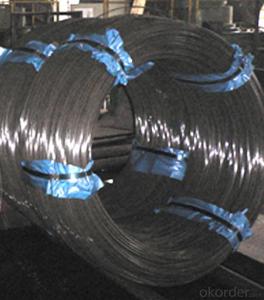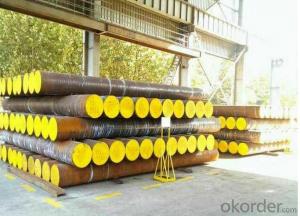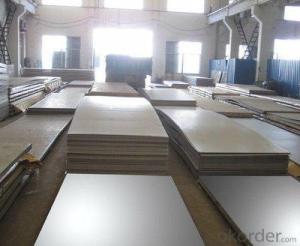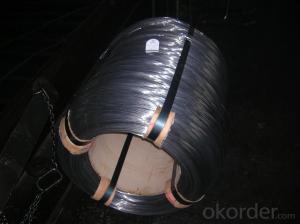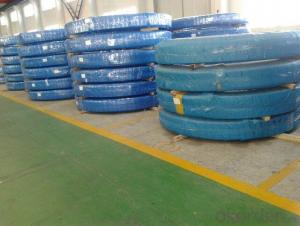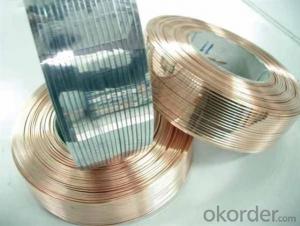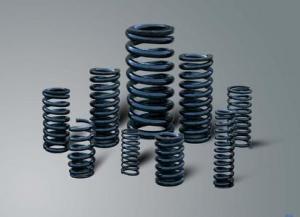HARD DRAWN SPRING STEEL WIRE
- Loading Port:
- China Main Port
- Payment Terms:
- TT OR LC
- Min Order Qty:
- -
- Supply Capability:
- -
OKorder Service Pledge
OKorder Financial Service
You Might Also Like
Steel grade should be 82B,65Mn,70#,72B,M10etc.Size from 0.4-12.0mm,mainly produced into door springs.coil weight can reach 1200KGS.we now export to South africa,SAUDI ARABIA,IRAN and INDIA.
We can satisfying market demands constantly and empoldering new product;can offering wires according to German standards(DIN17223/1,DIN17223/2),American standards(ASTM A227/A227M,ASTM A228/228M,ASTM 231/A231M,ASTM A401/401M),Japanese standards(JIS G3521,JIS G3522,JIS G3560,JIS G3561).and European standards(DIN EN10270-1,DIN10270-2)and so on.
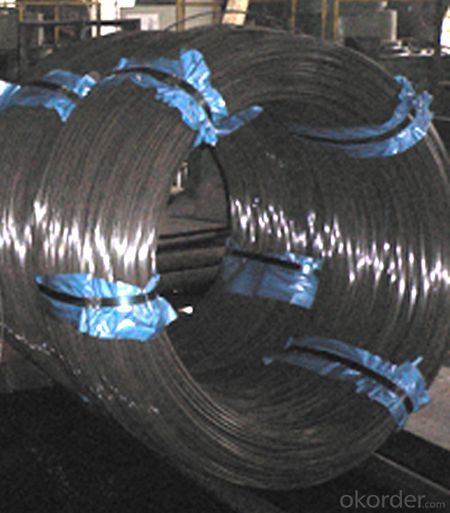
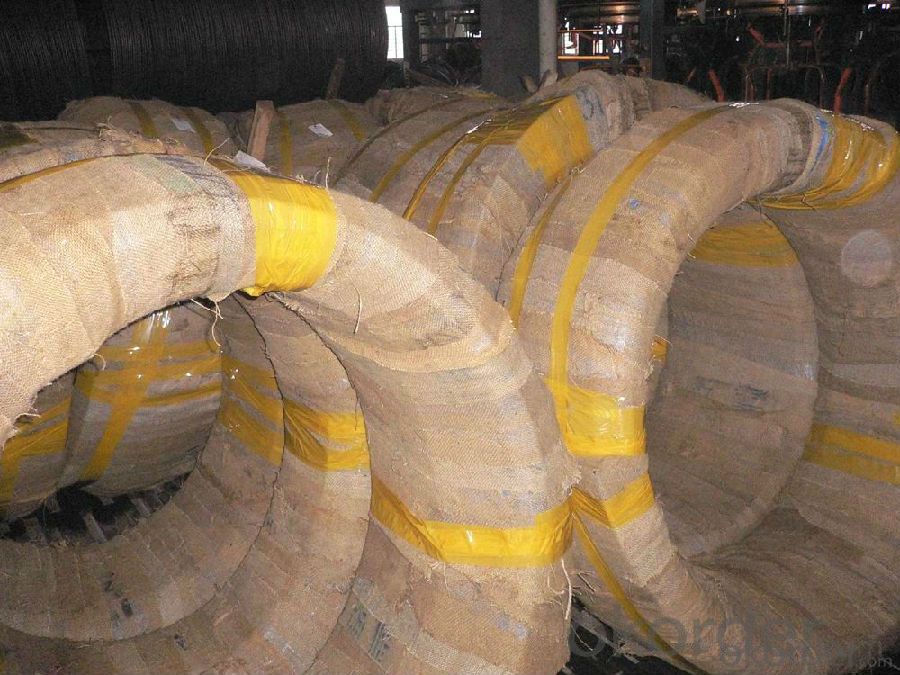
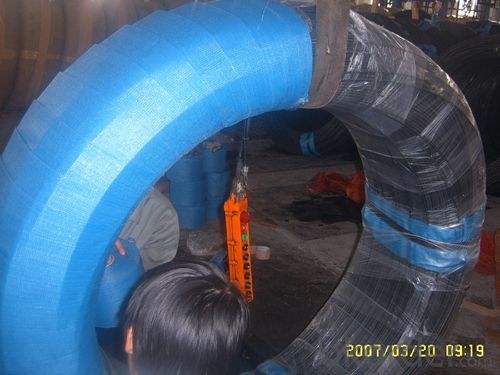
- Q: What is the impact of titanium in special steel alloys?
- Titanium is a highly versatile and valuable element when it comes to special steel alloys. Its addition to steel alloys has a significant impact on their properties and performance. One of the major impacts of titanium in special steel alloys is improved strength and durability. Titanium has a high strength-to-weight ratio, which means that even a small amount of titanium can greatly enhance the strength of the steel alloy. This is particularly beneficial in applications where high strength and resistance to deformation or fatigue are required, such as in aerospace or automotive industries. Moreover, titanium also contributes to the corrosion resistance of steel alloys. It forms a protective oxide layer on the surface of the steel, preventing or reducing the effects of corrosion caused by exposure to various environmental factors such as moisture, chemicals, or saltwater. This corrosion resistance is especially crucial in industries where steel is exposed to harsh conditions, such as marine or offshore applications. Another significant impact of titanium in special steel alloys is its ability to improve heat resistance. Titanium has a high melting point and excellent thermal stability, making steel alloys with titanium suitable for high-temperature applications. This is particularly important in industries like power generation, where steel components must withstand extreme temperatures without losing their structural integrity. Furthermore, titanium imparts excellent weldability to steel alloys. It acts as a deoxidizer, reducing the presence of impurities and improving the quality of welds. This is highly advantageous in manufacturing processes where welding is involved, as it ensures strong and reliable joints. In summary, the impact of titanium in special steel alloys is multifaceted and highly beneficial. It enhances the strength, durability, and corrosion resistance of steel, while also improving its heat resistance and weldability. These properties make titanium an invaluable element in the development of high-performance steel alloys for a wide range of industries.
- Q: How does special steel contribute to the automotive aftermarket industry?
- Special steel plays a crucial role in the automotive aftermarket industry as it offers enhanced strength, durability, and corrosion resistance compared to regular steel. This allows manufacturers to produce high-performance components such as engine parts, chassis components, and suspension systems. Additionally, special steel's unique properties enable the creation of lighter and more fuel-efficient vehicles. Its contribution to the aftermarket industry lies in providing the necessary materials for the production of high-quality and long-lasting aftermarket parts that meet the demands of vehicle customization and performance upgrades.
- Q: Can special steel be used for musical instruments?
- Yes, special steel can be used for musical instruments. Steel alloys such as stainless steel or carbon steel are commonly used in the construction of certain musical instruments, particularly those requiring durability and resistance to corrosion. Examples include steel drums, certain percussion instruments, and parts of brass instruments like trumpets.
- Q: How does special steel contribute to improving product reliability?
- Special steel contributes to improving product reliability in several ways. Firstly, special steel is known for its exceptional strength and durability, which enhances the overall performance and lifespan of various products. It can withstand heavy loads, resist wear and tear, and maintain its structural integrity even under extreme conditions. Secondly, special steels often possess excellent corrosion resistance properties, preventing rust and deterioration over time. This is particularly crucial for products exposed to moisture or harsh environments. Additionally, special steel allows for precise manufacturing and provides consistent material properties, ensuring the quality and reliability of the final product. By utilizing special steel, manufacturers can enhance the reliability of their products, offering customers a longer lifespan, reduced maintenance requirements, and increased safety and performance.
- Q: How does special steel contribute to the oil and gas aftermarket industry?
- Special steel plays a crucial role in the oil and gas aftermarket industry by offering enhanced performance, durability, and resistance to extreme conditions. It is used in various components such as pipes, valves, fittings, and drilling equipment, ensuring efficient and reliable operations in harsh environments. The unique properties of special steel, including high strength, corrosion resistance, and heat resistance, enable the industry to achieve increased productivity, improved safety, and extended equipment lifespan.
- Q: What are the different certifications available for special steel?
- There are several certifications available for special steel, depending on the specific industry and application. Some of the commonly recognized certifications include: 1. ISO 9001: This certification ensures that the special steel manufacturer has implemented and maintained a quality management system that complies with international standards. It demonstrates the company's commitment to consistently providing products that meet customer requirements. 2. ISO 14001: This certification focuses on environmental management and ensures that the special steel manufacturer has implemented environmentally friendly practices in their operations. It demonstrates the company's commitment to reducing their environmental impact. 3. ASME (American Society of Mechanical Engineers) certifications: ASME offers various certifications for special steel used in pressure vessels, boilers, and other applications. These certifications ensure that the special steel meets specific quality and safety standards required by the industry. 4. PED (Pressure Equipment Directive): This certification is required for special steel used in pressure equipment in the European Union. It ensures that the steel meets specific safety and quality requirements. 5. NACE (National Association of Corrosion Engineers) certifications: NACE offers certifications for special steel used in corrosive environments. These certifications ensure that the steel has the necessary resistance against corrosion and can withstand harsh conditions. 6. API (American Petroleum Institute) certifications: API offers certifications for special steel used in the oil and gas industry. These certifications ensure that the steel meets specific quality and performance standards required for various applications in the industry. 7. ASTM (American Society for Testing and Materials) certifications: ASTM offers various certifications for special steel based on specific standards and specifications. These certifications ensure that the steel meets the required mechanical properties, chemical composition, and other criteria. It is important for manufacturers, suppliers, and end-users to consider these certifications when selecting special steel for their specific applications. These certifications provide assurance and confidence in the quality, safety, and performance of the special steel products.
- Q: What are the common challenges in welding special steel?
- Some common challenges in welding special steel include controlling heat input, preventing distortion and cracking, ensuring proper fusion, and managing the formation of undesirable microstructures. Special steels often have specific alloy compositions and properties that make them more sensitive to heat and more prone to cracking. Therefore, precise control of welding parameters, preheating, and post-weld heat treatment are crucial to overcome these challenges and achieve high-quality welds in special steel.
- Q: How does special steel perform in tooling applications?
- Special steel performs exceptionally well in tooling applications due to its unique properties and characteristics. Special steel, also known as tool steel, is specifically designed and manufactured to withstand the demanding conditions of tooling applications. One key advantage of special steel is its high hardness. Tooling applications often involve cutting, shaping, and forming hard materials, and special steel's hardness allows it to effectively withstand the extreme pressures and forces involved in these processes. This hardness also helps in retaining the sharpness of the cutting edges for extended periods, ensuring consistent and precise performance. Furthermore, special steel exhibits excellent wear resistance. Tooling applications typically involve repetitive and abrasive actions, which can cause considerable wear and tear on the tools. However, special steel's resistance to wear ensures that the tools maintain their performance and longevity, reducing the need for frequent replacements and downtime. Another important aspect of special steel is its excellent toughness. Tooling applications often subject the tools to sudden impacts and shock loads. Special steel's toughness enables it to absorb these impacts without fracturing or breaking, making it highly reliable and durable in such applications. Additionally, special steel offers good heat resistance and dimensional stability. Tooling applications often involve high temperatures, and special steel's ability to withstand heat prevents it from losing its hardness and other mechanical properties. This ensures consistent performance and dimensional stability, resulting in accurate and precise tooling. Lastly, special steel is also known for its corrosion resistance. Tooling applications may involve exposure to moisture, chemicals, or harsh environments, which can lead to corrosion and degradation of the tools. Special steel's corrosion resistance protects the tools from these corrosive elements, prolonging their lifespan and maintaining their performance. In conclusion, special steel is highly effective in tooling applications due to its hardness, wear resistance, toughness, heat resistance, dimensional stability, and corrosion resistance. These properties allow special steel tools to withstand the demanding conditions of tooling applications, ensuring reliable and long-lasting performance.
- Q: What are the different methods of preventing galvanic corrosion in special steel?
- There are several methods of preventing galvanic corrosion in special steel. Some common approaches include using protective coatings or barriers such as paints, varnishes, or corrosion-resistant alloys. Another method is cathodic protection, where a sacrificial anode is connected to the steel to attract corrosion instead. Additionally, controlling the environment by reducing moisture or adding inhibitors can also help prevent galvanic corrosion in special steel.
- Q: How does the microstructure of special steel affect its performance?
- The microstructure of special steel plays a crucial role in determining its performance. It influences various mechanical properties such as strength, hardness, toughness, and wear resistance. By controlling the arrangement and size of the steel's grains, as well as the presence of any additional phases, manufacturers can tailor the material to meet specific requirements. For instance, a finer grain structure can enhance strength and hardness, while a uniform distribution of carbides can improve wear resistance. Consequently, optimizing the microstructure allows special steel to exhibit superior performance characteristics in specific applications.
Send your message to us
HARD DRAWN SPRING STEEL WIRE
- Loading Port:
- China Main Port
- Payment Terms:
- TT OR LC
- Min Order Qty:
- -
- Supply Capability:
- -
OKorder Service Pledge
OKorder Financial Service
Similar products
Hot products
Hot Searches
Related keywords
